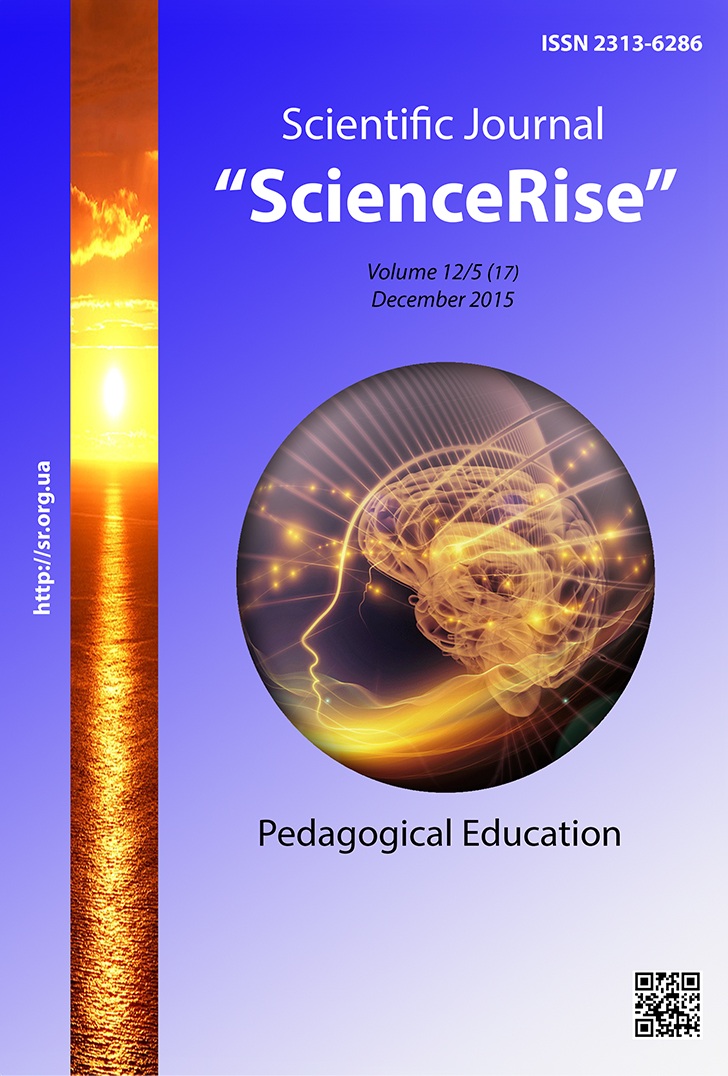Methodological basis of training of musically gifted student
DOI:
https://doi.org/10.15587/2313-8416.2015.56844Keywords:
gifts, synergetic, systemic, humanistic, active, acmeological, axiological, facilitating and hermeneutical approachesAbstract
Methodological bases of problem of professional training of musically gifted students are investigated. It is established that at the level of general scientific methodology the problem of training involves an appeal to a synergistic, systemic, humanistic and active approaches. The study of the problem at the level of specifically scientific methodology was carried out on the basis of acmeological, axiological, facilitating and hermeneutical approaches
References
Andrushchenko, V. P. (2008). Rozdumy pro osvitu. Kyiv: Znannia Ukrainy, 819.
Natsionalna stratehiia rozvytku osvity v Ukraini na 2012–2021 roky (2012). Osvita Ukrainy, 2–9. Available at: http://www.meduniv.lviv.ua/files/info/nats_strategia.pdf
Vozniuk, O. V. (2009). Rozvytok vitchyznianoi pedahohichnoi dumky: synerhetychnyi pidkhid. Zhitomir: Vydavnytstvo ZhDU imeni I. Franka, 184.
Kremen, V. H., Il'i'n, V. V. (2012). Synerhetyka v osviti: kontekst liudyno tsentryzmu. Kyiv: Pedahohichna dumka, 367.
Zaichenko, A., Sahatovskyi, V. M., Kalnyi, I. I. et. al; Zai'chenko, G. A. (Ed.) (1995). Filosofiia. Kyiv: Vyshcha shkola, 455.
Otych, O. M.; Zjazjun, I. A. (Ed.) (2009). Mystectvo u systemi rozvytku tvorchoi' indyvidual'nosti majbutn'ogo pedagoga profesijnogo navchannja: teoretychnyj i metodychnyj aspekty. Chernivtsi: Zelena Bukovyna, 752.
Downloads
Published
Issue
Section
License
Copyright (c) 2015 Ірина Іванівна Полубоярина

This work is licensed under a Creative Commons Attribution 4.0 International License.
Our journal abides by the Creative Commons CC BY copyright rights and permissions for open access journals.
Authors, who are published in this journal, agree to the following conditions:
1. The authors reserve the right to authorship of the work and pass the first publication right of this work to the journal under the terms of a Creative Commons CC BY, which allows others to freely distribute the published research with the obligatory reference to the authors of the original work and the first publication of the work in this journal.
2. The authors have the right to conclude separate supplement agreements that relate to non-exclusive work distribution in the form in which it has been published by the journal (for example, to upload the work to the online storage of the journal or publish it as part of a monograph), provided that the reference to the first publication of the work in this journal is included.

